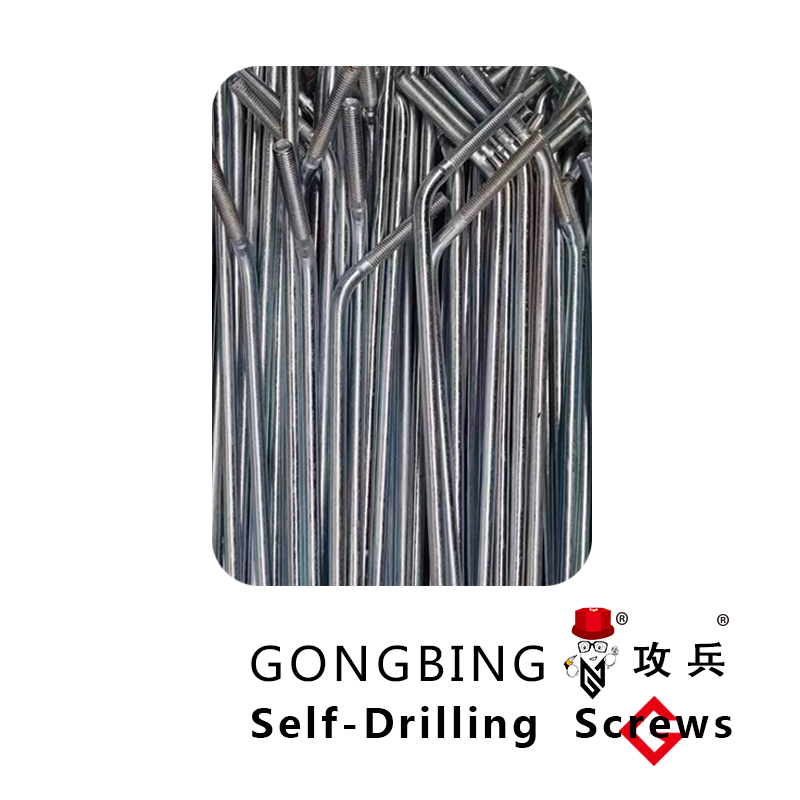hex timber screws
The Rise of Hex Timber Screws in Modern Construction
In recent years, the construction industry has witnessed a significant evolution in fastening technologies, and hex timber screws have emerged as a preferred choice for many builders and carpenters. These screws, characterized by their hexagonal heads, offer several advantages over traditional fastening methods, often leading to improved efficiency, durability, and strength in wooden structures.
Understanding Hex Timber Screws
Hex timber screws are specially designed screws that feature a hexagonal head, allowing for the use of a wrench or socket for tightening. This design not only provides a more robust grip compared to other head types, such as Phillips or slotted heads, but also allows for greater torque and controllability during installation. Typically, these screws are made from high-quality steel and are often coated for enhanced corrosion resistance, making them suitable for both indoor and outdoor applications.
Benefits of Using Hex Timber Screws
1. Improved Grip and Torque The hexagonal shape of the screw head allows for multiple points of contact with the tool used for driving the screw. This reduces the chances of stripping the head compared to other screw designs. As a result, builders can apply more torque without damaging the screw, leading to a more secure fastening.
2. Enhanced Resistance to Shearing Hex timber screws are designed to handle greater loads, making them ideal for structural applications. Their robust design helps prevent shearing under stress, which is crucial in construction projects where strength and durability are paramount.
hex timber screws

3. Versatility in Applications These screws can be used in various applications, from framing and decking to large outdoor structures like pergolas and gazebos. Their ability to securely join different types of timber makes them a versatile choice for builders.
4. Ease of Installation The straightforward driving mechanism means that hex timber screws are usually easier to install than traditional lag bolts. With the right hex wrench or socket, they can be driven into the wood quickly and efficiently, streamlining the construction process.
5. Corrosion Resistance Many hex timber screws come with protective coatings like zinc plating or epoxy finishes. This added layer of protection is essential, especially in outdoor constructions where moisture can lead to rust and deterioration.
Sustainability and Environmental Considerations
In today's eco-conscious environment, the materials and methods we choose in construction play a significant role in sustainability. Hex timber screws, particularly those made from recycled or responsibly sourced materials, can help contribute to more sustainable building practices. Additionally, using screws instead of nails often results in less wood damage and waste, further supporting eco-friendly construction.
Conclusion
Hex timber screws represent a crucial advancement in fastening technology for the construction industry. Their unique design, enhanced strength, and versatility make them an invaluable tool for builders looking for reliable and efficient solutions. As the industry continues to innovate, the adoption of tools like hex timber screws will likely proliferate, supporting the demand for stronger, safer, and more sustainable constructions. Whether you are a professional contractor or a DIY enthusiast, incorporating hex timber screws into your projects can significantly elevate the quality and durability of your work. As we move forward, the importance of selecting the right fastening technology cannot be overstated—hex timber screws offer a pathway toward achieving superior results in woodworking and construction alike.
-
Weatherproof Plastic Expansion Anchors for OutdoorNewsJun.06,2025
-
Sustainability in the Supply Chain: Eco-Friendly TEK Screws ProductionNewsJun.06,2025
-
Load-Bearing Capacity of External Insulation FixingsNewsJun.06,2025
-
Double Head Bolts: Enhancing Efficiency in Industrial MachineryNewsJun.06,2025
-
Corrosion Resistance in Chipboard Screws: Coatings for Wholesale DurabilityNewsJun.06,2025
-
Butterfly Toggle Bolts : Enhancing Structural ResilienceNewsJun.06,2025
